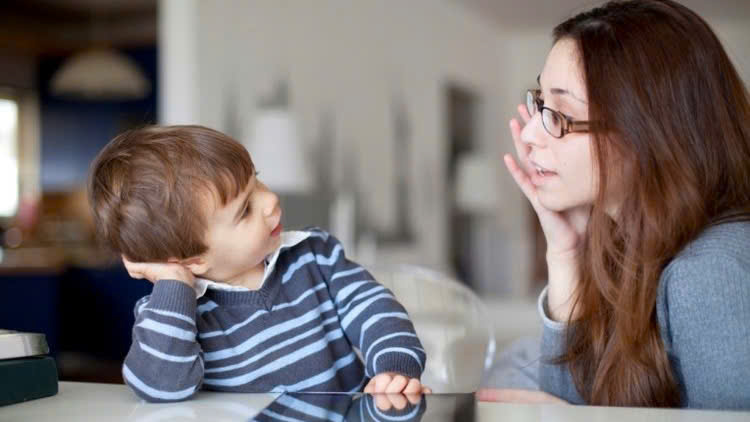Autism in children is no longer a strange concept to parents. Understanding the details of this disease not only helps detect early signs but also facilitates timely intervention and treatment, minimizing negative impacts on the child’s comprehensive development. Understanding what autistic children need and providing an appropriate supportive environment plays an important role in ensuring that autistic children can maximize their personal potential and integrate into society.
If you are wondering “what do autistic children need?”, the article below will provide information to help you answer your questions.
Overview of autism in children
What is autism in children?
Autism in children, or autism spectrum disorder (ASD), is a group of neurodevelopmental disorders in children, manifesting very early, usually before the age of 3 and can last throughout life.
The main characteristics of autism include poor social interaction, impaired communication and unusual behaviour. Autism is not a single condition but a spectrum of disorders with varying degrees of severity, which can appear very early in a child’s development.

What is autism in children?
Causes
Autism is considered a brain development disorder, related to abnormalities in the structure and function of the central nervous system. Although the specific cause of autism has not been clearly identified, there are some opinions that children with autism are due to:
- Genetics: Children can develop autism due to abnormal brain development related to genes that cause nerve damage.
- Factors during pregnancy: Mothers who are frequently exposed to toxic substances such as tobacco, alcohol, and drugs during pregnancy can increase the risk of autism in children.
- Environmental factors: Unfavorable environments such as toxic chemicals, pollution, or children who lack attention and education from the family can also contribute to the development of autism.

Environmental factors may increase the risk of autism in children
Signs of autism
Early detection of signs of autism is essential for timely intervention and support. Here are some common signs of autism in children:
- Difficulty in social communication: Children may make little eye contact, not respond when called by name or show no interest in people around them. Some children may avoid social interactions, appear uncomfortable when strangers or relatives come into contact.
- Language disorders: Children with autism often have problems with language development, expressed through slow speech or no speech. Some children may only say simple words, repeat words that others say or use language inappropriately for the situation.
- Repetitive behavior: Children may repeat movements such as flapping their hands, turning their body or moving objects in a certain way. These behaviors often have no clear purpose and can isolate children from their surroundings.
- Loss of developmental skills: Children with autism may gradually lose skills they acquired earlier. For example, a child may start talking or socializing normally but then lose this ability. This is a sign that needs to be closely monitored for timely intervention.
- Sensitivity to stimuli: Many children with autism have a high level of sensitivity to stimuli from the surrounding environment such as loud sounds, bright lights or tactile sensations. Children may overreact or, conversely, appear indifferent to stimuli that others feel clearly.
Early detection and intervention can help children improve their quality of life and develop social skills. Understanding these signs is an important first step in the process of caring for and supporting children with autism.

Recognizing the signs early is the first step in supporting autistic children.
What do children with autism need?
Children with autism have special needs related to social development, language and behavior. Understanding and meeting these needs plays an important role in supporting the overall development of the child. Below are essential factors for children with autism to help them develop skills and better integrate into society:
Support in communication and language
Children with autism often have difficulty in communication and language development. To overcome this problem, children need intervention through specialized language and communication therapies. These programs help children improve their ability to use language, while developing non-verbal communication skills such as gestures or pictures.
Special learning and education environments
Children with autism need educational environments that are adapted to their learning needs. Individualized education programs (IEPs) are designed to meet each child’s developmental level, ensuring that children receive appropriate materials, teaching methods, and support.
In addition, teachers and educational staff need specialized training in how to work with children with autism, helping them participate effectively in learning.
Emotional and behavioral support
Behavioral therapies such as cognitive behavioral therapy (CBT) or ABA therapy, help children with autism control their behavior and develop problem-solving skills. Children need to be taught how to manage their emotions, improve their ability to handle stressful situations, and adjust their behavior in a positive direction. These behavioral interventions help children with autism adapt better to society, reduce unwanted behaviors, and increase their confidence in communication.
Support from family and community
Families play a central role in the care and support of children with autism. Parents and caregivers need to be equipped with knowledge about autism, as well as skills to help their children develop better.
In addition, support from the community, such as support groups, non-governmental organizations and social services, is also an important factor in helping children and families have access to necessary resources and services.
Health care and nutrition
Health care and nutrition are important factors in ensuring the comprehensive development of children with autism. This includes regular health monitoring, managing associated health problems and providing a balanced diet (such as adding appropriate fruits). Appropriate health care and nutrition help maintain good health, supporting both physical and mental development of children.

What do autistic children need?
The above helps autistic children develop as best as possible and improve their quality of life. The coordination between experts, families, and schools is an important factor in effectively supporting autistic children.
The above article has provided useful information on the question: “What do autistic children need?”. In general, autistic children need a comprehensive support environment and care from their families and the community to help them develop better emotionally and socially. Hopefully, the article will provide you with useful information about autism in children. Wishing you and your family good health and happiness.





